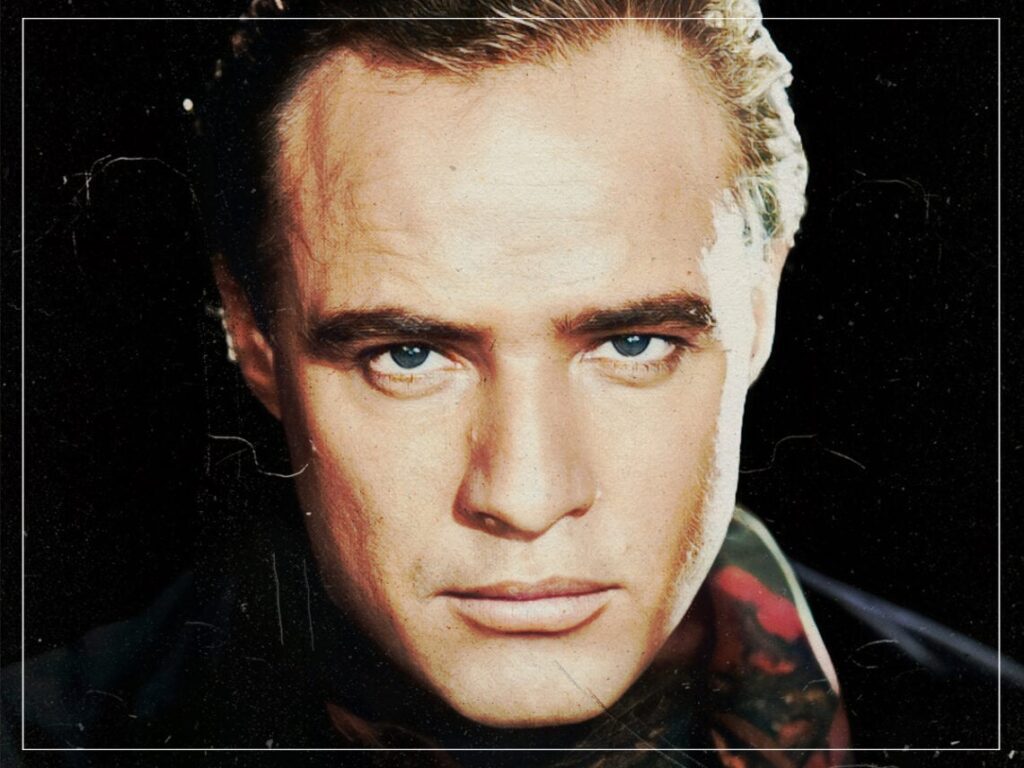The director who compared Marlon Brando to “a petulant child”
 Posted On
Posted On
(Credits: Far Out / Paramount Pictures)
Marlon Brando is not only an icon of cinema, but an icon of American masculinity. But one particular director didn’t think so highly of him in 1962, describing him instead as “a petulant child”. A 1962 article from The Saturday Evening Post details the disaster production of Mutiny on The Bounty, a remake of the 1935 classic, which was released nearly 30 years later.
Things started out well enough, with the movie set to be filmed entirely on location in Tahiti and to start filming in October 1960. However, in some intensely meta foreshadowing, soon enough, the picture would be derailed by the cast and crew.
Some of the issues were, of course, hard to get away from. Sadly, three members of the crew had passed away during the filming, meaning a dark cloud above the production was unavoidable. What was avoidable was Brando’s huge increase in weight over the 11-month shooting period, jumping from 170 to 210 pounds. While it isn’t the most destructive jump in weight, considering his diet was likely controlled by the production team, it was an impressive feat that changed the scheduled shooting.
To give an idea of how long the production took, a Tahitian girl was fired from the cast for becoming pregnant and then joined the cast again “long after she had her baby”. At the 11-month mark, the film’s cost had risen to $20million, a huge amount for the time and which is something closer to $200m today. It was set to be one of the most expensive films ever, so far in cinema history.
Writers and directors were joining and quitting, and after 11 months, the iconic filmmaker and screenwriter Billy Wilder, behind classics like Some Like It Hot and Sunset Boulevard, whose career in Hollywood ended up spanning five decades, stepped in as the feature’s sixth writer. Wilder was not impressed by Brando’s set manners, saying, “I’ve been in this business 40 years, and I’ve never seen anything like it”. According to Wilder, Brando would “put plugs in his ears so he couldn’t listen to the director or the other actors… That’s what Brando did. Whenever I’d try to direct him in a scene, he’d say, ‘Are you telling me, or are you asking my advice?’” Additionally, Brando refused to board the Bounty ship (a complete working replica that was built in Nova Scotia and sent to Tahiti) at the dock and instead insisted on having a speedboat take him out to the ship.
Wilder reflected on the experience of working with Brando: “I can only say that the movie industry has come to a sorry state when a thing like this can happen, but maybe this experience will bring our executives to their senses. They deserve what they get when they give a ham actor, a petulant child, complete control of an expensive picture.”
However, other members of the production actually defended Brando, saying that Wilder and Brando came from different generations and, therefore, had different ideas about the relationship between those in front of and those behind the camera. Aaron Rosenberg, the producer of Mutiny on The Bounty, said, “Marlon gave us a rough time, but he felt we were not living up to the agreements we had made with him about the basic concept of the picture. Besides, with a modern actor like him, he’s got to feel the part and you must allow him to make his contributions to the script and the directing. Otherwise, he can’t work.”
One of the biggest questions of the movie was the ending. Brando had a very particular vision, but the studio was unhappy, so Wilder wrote a new one, but director Lewis Milestone refused to shoot it, which led to George Seaton realising Wilder’s vision. As he was a massive box office draw, every production company was keen to have and keep Brando aboard a picture. But the old guard still believed in change, with director Robert Wise saying: “I think this is the new pattern for the industry—a turning point for all of us. Brando’s behaviour has made us realise how far out of hand the situation has gotten. More and more of us are saying, ‘The hell with the star. I’ll make little black-and-white pictures with good scripts and unknown actors.’”
As for Wilder, before the film’s release, he found himself invited to dinner with President John F Kennedy. Wilder had prepared himself to discuss matters of the world, but when he arrived, the burning question from the President was, “When in the world are they going to finish Mutiny on the Bounty?”
[embedded content]
Related Topics


